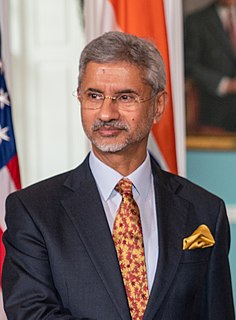A Quote by Eric Hobsbawm
The most lasting and universal consequence of the French revolution is the metric system
Related Quotes
In comparison to the French Revolution, the American Revolution has come to seem a parochial and rather dull event. This, despitethe fact that the American Revolution was successful--realizing the purposes of the revolutionaries and establishing a durable political regime--while the French Revolution was a resounding failure, devouring its own children and leading to an imperial despotism, followed by an eventual restoration of the monarchy.
As to the history of the revolution, my ideas may be peculiar, perhaps singular. What do we mean by the revolution? The war? That was no part of the revolution; it was only an effect and consequence of it. The revolution was in the minds of the people, and this was effected from 1760 to 1775, in the course of fifteen years, before a drop of blood was shed at Lexington.
The transformations of the French empire itself or of French power structures themselves as well as the emergence of a kind of language of equal rights starting with the American Revolution and the French Revolution provided an opportunity and in some ways connected with other kinds of ground level desires or hopes and ideologies for freedom that were coming out of the plantation regime itself.
Our film society back home is so different from here. Making a movie is universal. Directing a movie is universal; it's a universal language. It's just figuring things out and understanding the codes and how the system of Hollywood compares to that of Norway. We don't even have agents. There's no studio system, no managers.
A revolution is bloody, but America is in a unique position. She's the only country in history in a position actually to become involved in a bloodless revolution. The Russian revolution was bloody, Chinese revolution was bloody, French revolution was bloody, Cuban revolution was bloody, and there was nothing more bloody then the American Revolution. But today this country can become involved in a revolution that won't take bloodshed. All she's got to do is give the black man in this country everything that's due him, everything.
The most important quote about poetry and politics that I know is from a different situationist, Guy Debord. He was locked in a debate with the French Surrealists, many of whom by the 40s and 50s were part of the French communist party apparatus. Many Surrealists eventually argued for instrumentalizing art for political ends. Debord countered, "I don't want to put poetry in the service of revolution. I want to put revolution in the service of poetry".
The white man knows what a revolution is. He knows that the Black Revolution is worldwide in scope and in nature. The Black Revolution is sweeping Asia, is sweeping Africa, is rearing its head in Latin America. The Cuban Revolution - that's a revolution. They overturned the system. Revolution is in Asia, revolution is in Africa, and the white man is screaming because he sees revolution in Latin America. How do you think he'll react to you when you learn what a real revolution is?






































